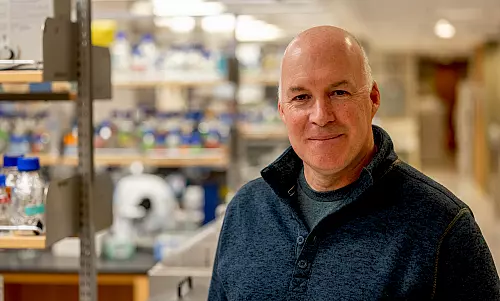"BLOOMINGTON, Ind. — An Indiana University biologist has been awarded $2.8 million from the National Institutes of Health’s National Institute of General Medical Sciences to investigate the DNA folding machinery inside cells. DNA folding errors can cause a wide variety of diseases, including genetic disorders and certain types of cancer.
Every human cell contains about 2 meters of DNA, said grant recipient Stephen Bell, an IU Distinguished Professor of biology and molecular and cellular biochemistry in the College of Arts and Sciences at IU Bloomington . The proteins under investigation — called structural maintenance of chromosome, or SMC, proteins — assist in compressing DNA into structures less than 10 millionths of a meter in length, through folding. These structures are chromosomes.
DNA misfolding has been linked to a variety of genetic diseases, such as wound healing disorders and Cornelia de Lange syndrome, whose symptoms include malformed arms and hands, cognitive issues, seizures and microcephaly. Misfolded genes have also been shown to play a role in some cancers."
Read the full article by News at IU here.

 The College of Arts
The College of Arts